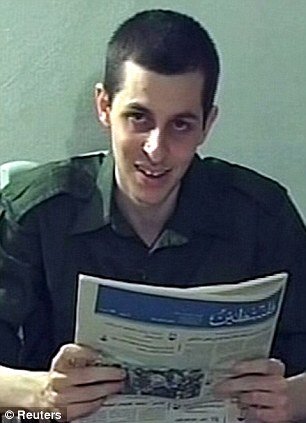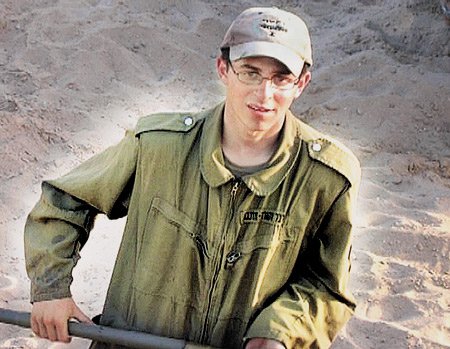Home Tags Posts tagged with "Hamas"
Hamas
Egypt’s Bedouin tribal leaders in Sinai peninsula have agreed to help restore security in the lawless border area with the Gaza Strip and Israel.
In talks with Interior Minister Ahmed Gamal al-Din, they also backed plans to destroy smuggling tunnels into Gaza.
The move comes as Egyptian troops mass in the area in an operation to contain Islamist militants who have built up a presence in the area.
The militants are suspected of killing 16 Egyptian border guards on Sunday.
Egypt has deployed extra troops, tanks and other armored vehicles.
Ahmed Gamal al-Din met the tribal leaders late on Thursday night at al-Arish, about 50 km (30 miles) west of the Gaza border, to ask for their support.
He later told reporters: “With the help of the people [of Sinai], the mission will succeed.”

Egypt's Bedouin tribal leaders in Sinai peninsula have agreed to help restore security in the lawless border area with the Gaza Strip and Israel
Sheikh Atef Zayed, a member of Al-Rishad tribe, said all present had pledged to support the military’s operation.
“Egypt’s security is a part of Sinai’s security,” Reuters news agency quoted him as saying.
Another tribal leader, Eid Abu Marzuka, said the tribes had also reached a consensus that the tunnels should be destroyed.
“Let Hamas be upset, we don’t care,” he said, of the Islamist group which control the Gaza Strip.
Eid Abu Marzuka said Israel’s contact with Palestinians in Gaza should be through the official Rafah border crossing.
There are more than 1,200 illegal tunnels along the Egypt-Gaza border. They are used to get basic goods past Israel’s blockade of the enclave but also smuggle in weapons and people.
The militants who launched Sunday’s attacks are believed to have used them as an escape route.
Egypt’s Mena news agency reports that the army has already begun sealing them off.
The latest violence in the Sinai region began on Sunday, when militants carried out the deadliest and most brazen attack against Egyptian troops in the Sinai region for decades, killing 16 border guards.
There were further attacks on checkpoints in al-Arish on Wednesday, which left a number of people wounded.
Egypt launched its military offensive hours later, carrying out missile strikes from helicopters.
According to military officials, 20 people were killed in the village of Touma, while the Sheikh Zuwaid area to the west was also hit.
Further armoured personnel carriers could be seen overnight on Thursday, heading eastwards towards the border region.
Egypt’s military presence in Sinai is limited and requires Israeli approval under the terms of the 1979 peace treaty which returned Sinai to Egyptian control.
Analysts say that the security situation in the area has deteriorated following the fall of Hosni Mubarak last year, and that Islamist extremists appear to have gained a foothold.
Gilad Shalit, the Israeli soldier who was Hamas prisoner for five years in Gaza, has been released today.
Sergeant Gilad Shalit was freed as part of an exchange between Israel and Hamas. In return, Israel will release 477 Palestinian prisoners as part of the deal.
The Israeli soldier was taken across the frontier from the Gaza Strip into Egypt’s Sinai peninsula, where he was handed over to Egyptian officials.

Gilad Shalit, the Israeli soldier who was Hamas prisoner for five years in Gaza, has been released today in a thousand-for-one deal
Gilad Shalit will be taken to Israel’s Vineyard of Peace border crossing a short distance away down a desert road.
Early in the morning, convoys of white vans and trucks transported hundreds of Palestinian prisoners to the locations in the West Bank and on the Israel-Egypt border where they were to be freed.
Some of the Palestinian prisoners were due to be taken to the Sinai and handed over to Egyptian officials for transfer to the Gaza Strip, which is run by Hamas. Other prisoners were to be released in the occupied West Bank.
Among the Palestinian prisoners released some were serving life sentences for carrying out deadly attacks.
It is expected in about two months, another 550 Palestinians are to be released in a second stage of the Egyptian-brokered agreement.
The Israeli and Hamas exchange involves a delicate series of staged releases, each one triggering the next.
Gilad Shalit has been popularly portrayed in his country as “everyone’s son” and opinion polls showed that an overwhelming majority of Israeli backed the thousand-for-one deal.
Sergeant Gilad Shalit appeared to be healthy in the only time he has been seen in captivity – in a brief and scripted 2009 video released by Hamas – he was denied all visits, including by the Red Cross, and the state of his mental and physical health is unclear.
The exchange deal received approval from Israel’s Supreme Court last Monday after it rejected petitions from the public to prevent the mass release of prisoners, many of them serving life sentences for deadly attacks.
In June 2006, Gilad Shalit was abducted by Hamas militants who tunneled into Israel from the Gaza Strip and surprised his tank crew, killing two of his comrades.
After Gilad Shalit was seized, Israel, which withdrew troops and settlers from Gaza in 2005, tightened its blockade of the coastal territory.
The Israeli deal with Hamas (a group classified by the United States and European Union as a terrorist organization because of its refusal to recognize Israel and renounce violence) is not expected to have a direct impact on efforts to revive Middle East peace talks.
Palestinian President Mahmoud Abbas, a Hamas rival, has been pursuing United Nations recognition of Palestinian statehood in the absence of negotiations with Israel that collapsed 13 months ago in a dispute over settlement-building in the occupied West Bank.
In the morning, crowds were gathered in both Gaza and the West Bank awaiting the return of their prisoners.
Gilad Shalit will be flown by helicopter to an air base in the centre of Israel, where soldier will be greeted by Prime Minister Benjamin Netanyahu and reunited with his family. Then Gilad Shalit will fly to his home in northern Israel.
There were some concerns in Israel about the repatriation of captured soldiers and that the country is paying a high price for the release of Gilad Shalit.
Israeli PM Benjamin Netanyahu wrote in a letter to bereaved families: “I understand the difficulty in accepting that the vile people who committed the heinous crimes against your loved ones will not pay the full price they deserve.”
Israel and Hamas group, which runs in Gaza, have agreed on a deal for releasing Sergeant Gilad Shalit, an Israeli soldier held hostage by Palestinian militants since 2006.
Israeli PM Benjamin Netanyahu said they agreed only after arduous talks, and that Sergeant Gilad Shalit, 25, would be back with his family “within days”.
In exchange, Israel said will release hundreds of Palestinian prisoners.
Gilad Shalit was captured in a cross-border raid five years ago, and attempts to negotiate his release have failed.

Israel and Hamas have agreed on a deal for releasing Sergeant Gilad Shalit, an Israeli soldier held hostage by Palestinian militants since 2006
Israeli PM said in a national TV address:
“We have concluded arduous negotiations with Hamas to release Gilad Shalit. He will be coming home in the next few days.”
Gilad Shalit’s continued detention is a hugely emotive issue in Israel, where his family has maintained a high profile campaign for his release.
In the same time, there are many Israelis who have had family members killed by Palestinian militants and, of course, will object in principle to any mass release of prisoners by Israel.
According to a senior Israeli official, there are some high-profile Palestinian prisoners that have been excluded from the release deal.
The Israel and Hamas deal was confirmed in the Israeli cabinet by a 26-3 vote, following a heated three-hour debate.
“This is a difficult decision, but leadership is tested at moments like this, on the ability to make difficult decisions,” said PM Benjamin Netanyahu in a statement.
On the other hand, Hamas said in a statement that there were tens of thousands of people on the streets celebrating the deal, firing guns into the air and honking car horns.
Hamas’s leader Khaled Meshaal, who is in exile in Syria, appeared on TV to hail the swap deal as a victory for the Palestinian people.
Khaled Meshaal said the Israel had agreed to release 1,027 prisoners – including 27 women.
According to Yoram Cohen, head of Israel’s Shin Bet internal intelligence service, the high-profile prisoners not due for release include key Fatah leader Marwan Barghouti, Ahmed Saadat, found guilty of ordering the killing of Israel’s tourism minister in 2001, and Hamas’ Abdullah Barghouti.
The first 450 prisoners would be freed in the coming days, with the rest being released over the next two months.
“It is a great achievement, a qualitative success,” said the militant group’s leader, Khaled Meshaal.
“Because of this accord, there will no longer be any women in the jails of the enemy.”
Hamas leader promised to carry on working to free every Palestinian prisoner held in Israeli jails.
About 5,000 Palestinians are now held by Israel – some of whom have been convicted of serious crimes, but others are being held without charge.
Local Israeli television, Channel 2 TV reported that both sides, Israel and Hamas, had shown greater flexibility in recent talks.
Indirect talks over the Gilad Shalit ‘s release have been going on for years, with Egypt and Germany mediating.
In October 2009, Hamas released a video of Gilad Shalit calling on Benjamin Netanyahu to do everything to free him.
 Prev12Page 2 of 2
Prev12Page 2 of 2



